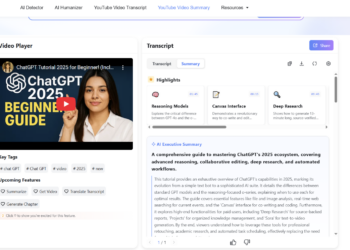The data science wave is here, and the PGDM offers a powerful springboard to ride it. This guide unlocks everything you need to know about pursuing a PGDM in Data Science in 2024. We’ll navigate the program, explore in-demand skills, and equip you to make an informed decision about launching your data-driven future.
What is PGDM?
PGDM stands for Post Graduate Diploma in Management. It’s a two-year program designed to equip students with management skills. Unlike a traditional MBA, PGDM programs are usually offered by autonomous institutes not affiliated with universities.
Differences Between PGDM and MBA
While PGDM and MBA hold significant value, some key differences exist. An MBA is a degree program typically provided by universities, whereas a PGDM is a diploma program offered by autonomous institutes. The curriculum of PGDM programs is often more industry-oriented and updated regularly to reflect current business practices.
Specialised vs. General Management Programs
PGDM programs can be specialised – focused on specific industries like data science – or general management programs. Specialised programs, like PGDM in Data Science, offer tailored courses that delve deep into their respective fields, providing a more directed career path.
Overview of Data Science
What Constitutes Data Science?
In data science, knowledge and insights are extracted from both organised and unstructured data utilising scientific procedures, systems, algorithms, and methods. It includes big data analytics, machine learning, and data mining.
Applications in Various Sectors
Data science has diverse applications, such as:
- Healthcare: Patient care using analysis using modern technology and data.
- Finance: Fraud detection and risk management.
- Retail: Customer personalisation and inventory management.
- Marketing: Targeted advertising and consumer behaviour analysis.
Evolution and Growth of the Field
Data science has evolved significantly from basic statistical analysis to complex algorithms and machine learning models. With the rise of big data and computational power, the growth of data science continues to accelerate.
Importance of Combining Business and Data Science
Why Business Skills Matter in Data Science
Business acumen allows data scientists to understand broader organisational goals, effectively communicate insights, and make strategic decisions that align with business objectives.
Benefits of an Interdisciplinary Approach
Combining business skills with data science leads to more well-rounded professionals who can tackle multifaceted problems and drive innovations.
Real-World Applications
Professionals with data science and business skills can contribute to strategic planning, operational efficiency, and market analysis, making them valuable assets to any organisation.
Course Structure and Curriculum
Core Subjects and Topics
Introduction to Data Analytics
Students start with data handling, cleaning, and statistical analysis basics.
Machine Learning and AI Basics
Introduction to machine learning algorithms, neural networks, and AI applications.
Business Strategy and Ethical Considerations
Understanding how data science fits into business strategy, alongside ethical considerations in data handling.
Elective Courses
Advanced Predictive Modeling
In-depth study of predictive models, including regression, classification, and clustering techniques.
Big Data Technologies
Exploring tools and technologies for handling and analysing large datasets, such as Hadoop and Spark.
Specialised Industry Applications (e.g., Finance, Healthcare)
Tailored electives focusing on data science applications in specific industries.
Capstone Projects and Internships
Importance of Practical Experience
Hands-on projects and internships are crucial for applying theoretical knowledge in real-world scenarios.
Types of Projects Typically Offered
Projects range from developing predictive models to optimising business processes using data-driven insights.
Internship Opportunities and Industry Partnerships
Programs often collaborate with industry partners to provide internship opportunities, offering students valuable work experience.
Skills Acquired Through the Program
Technical Proficiency
Programming Languages (e.g., Python, R)
Learning languages is crucial for data analysis, machine learning, and data visualisation.
Statistical Analysis and Data Visualisation
Mastering statistical techniques and tools like Tableau for visualising data insights.
Data Management and SQL
Skills in managing databases and writing queries with SQL.
Analytical Skills
Problem-Solving Techniques
Developing strategies to tackle complex business problems using data.
Critical Thinking
Fostering the ability to analyse situations from multiple perspectives.
Decision-Making Based on Data
Making informed decisions backed by data analysis.
Business and Management Skills
Leadership and Team Management
Skills to lead data science teams and manage projects effectively.
Strategic Thinking
Understanding the long-term implications of data-driven strategies.
Communication and Presentation Skills
Effectively presenting data insights to non-technical stakeholders.
Career Opportunities and Prospects
Job Roles and Industries
Data Scientist
Experts who analyse and interpret complex data to help organisations make decisions.
Business Analyst
Professionals who use data to understand business processes and recommend improvements.
Industry-specific Opportunities (e.g., Marketing, Logistics)
Specialised roles based on applications in various sectors such as healthcare and finance.
Salary Expectations
Average Starting Salaries
Starting salaries are typically competitive, reflecting the high demand for data scientists.
Factors Influencing Salary
Factors include location, industry, and level of expertise.
Comparison with Other Fields
Data science generally offers higher starting salaries compared to many other fields.
Career Growth and Advancement
Entry-Level to Senior Positions
Pathways from junior data analyst roles to senior data scientist or chief data officer positions.
Continuing Education and Certification
Continuous learning through certifications in advanced data science topics.
Long-Term Career Outlook
The growing importance of data ensures long-term career prospects and opportunities for advancement.
Benefits of Pursuing a PGDM in Data Science
Professional Development
Enhanced Skillset
A diverse set of skills enhancing both technical and business knowledge.
Higher Employability
Increased job opportunities due to specialised training.
Professional Recognition
Credentials recognised by industry leaders.
Industry-Relevant Knowledge
Keeping Up with Latest Trends
Exposure to the latest developments in data science.
Practical Applications Learned
Learning through practical projects that simulate real-world scenarios.
Case Studies and Real-World Examples
Studying success stories and failures to understand the practical implications of data science.
Networking Opportunities
Building Professional Connections
Interactions with peers, professors, and industry professionals.
Alumni Networks
Access to a network of former students who can offer guidance and job opportunities.
Industry Events and Conferences
Opportunities to attend and participate in data science conferences and seminars.
Conclusion
We explored the definition and structure of PGDM in Data Science, its curriculum, the skills acquired, career opportunities, and the numerous benefits of pursuing this program.
Combining data science with business skills prepares versatile professionals for various high-demand roles in today’s data-driven world. Practical experience, a comprehensive curriculum, and ample networking opportunities make a PGDM in Data Science worth considering for 2024 and beyond.







